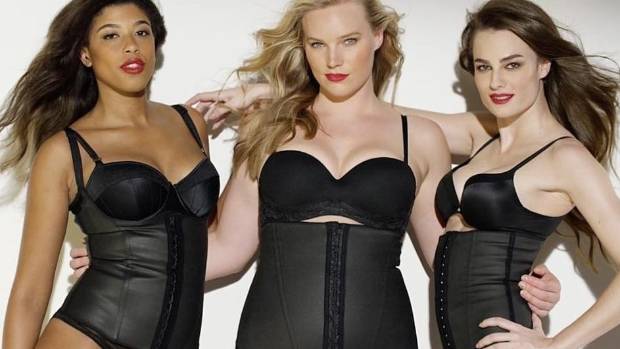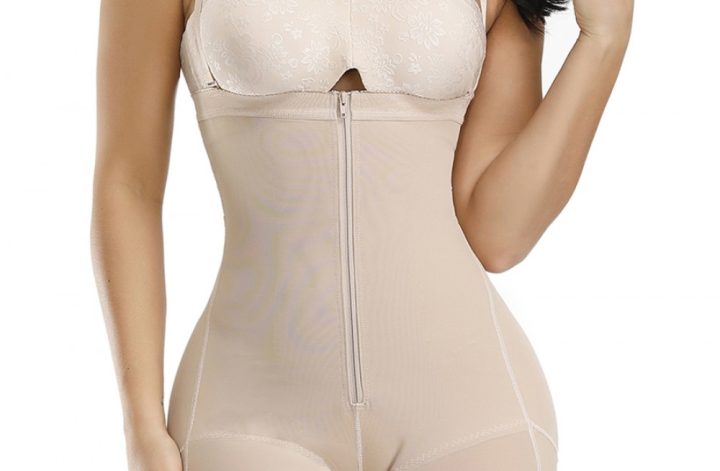A few weeks ago, a friend posted a corset on Facebook that was trapped on a bus. Shapewear, for people who are unfamiliar, is also known as “control” underwear, or the brand name, Spanx, which is designed to absorb the belly, hips and thighs, depending on which type of corset you slide over your body. They are modern versions of corsets, also known as underwear, that may try to kill you.
This is a clumsy, lost post, and many of us who are used to social media will share the details of our lives and find some comfort in unity. What point did she receive, a little. She also received comments from people who didn’t know why she was wearing a corset first. Others severely instructed her to get rid of the shame of her body and embrace her curves.
It sounds like little trifles in the life of the first world, but they also show the daily patriarchy that women are constantly walking through every day. Small and trivial? Maybe until you see how false beauty standards affect income, self-esteem and mental health.
Studies have shown that people who think attractive people can get more income. For women, this is almost entirely to modify, in other words, if you make up, spend time on your hair and clothes, so you look even more With traditional appeal, you are more likely to be employed, you may get more, and you are more likely to get a promotion.
As women age and their perception of attractiveness declines, this has a subsequent impact. Although age discrimination has an impact on both men and women, it is a problem for women and is undeniably related to their appearance.
Of course, women’s weight is always judged. Even subtle weight gains can affect employers’ perceptions of potential job seekers, especially women.
As with all issues that are harmful to women, it has a greater impact on women of color. In this case, European beauty standards have a greater impact on their life trajectory. Women with significant disabilities can also be severely affected by wrong beauty standards, and women can choose a more beautiful concept if they only work hard.
If you do this, this is a classic curse. If you don’t have this situation damn, no matter how you choose your curse, you will blame the woman. Not done enough? You let yourself go, really, will you get a little lipstick and repair your hair? Doing too much? Why can’t you be a proper feminist and love yourself like you? It’s easy to say that women shouldn’t worry about what they look like. They should be confident in what they do. Maybe it’s even true, but putting it in a public place like a TV is not that easy, and knowing that your social media feed will be full of your body, face, hair, skin before you take out the headphones. comment. And clothes. Even for women outside the public domain, comments on the appearance of strangers, partners, friends and colleagues are so constant that we almost forget to pay attention to it.

Women who recognize that false beauty standards are compromised and reject their demands are still struggling to get rid of the internalized self-hatred they impose. The strange thing is that other women’s reactions are a strange victim of blame. Why does she wear her own corset or botulinum toxin or high heels, waxing or tight clothing or a demanding and expensive makeup system? Why can’t she surpass the lessons she has imposed since her infancy and be strengthened in her daily interaction with the world? What’s up with her?
She has no problems. Everything is wrong, and the attitude of gender discrimination instills the belief that the value of women can be judged by her appearance and the impact of women’s self-esteem and economic security.
The writing about women and their behavior under patriarchy is very different from the way men write. Both suffer because of patriarchy, but women tend to turn their pains to the heart and punish themselves. Men are more likely to turn outwards and punish others.
Most feminist writings are analyzing some form of pain and its expression. An in-depth understanding of inner punishment makes it painful for other women. Despite this, women often blame other women for internalizing false beauty standards without blaming their own standards. This is understandable. Telling someone to change their behavior, or at least stop talking about it, is easier than changing an entire amorphous culture that connects beauty to acceptable women.
Change takes time, we don’t have to fight every day, we won’t even win all our battles, but small steps can help you. Perhaps it is a gentle reminder that we are fighting patriarchy, not other women, and may be one of these steps.

